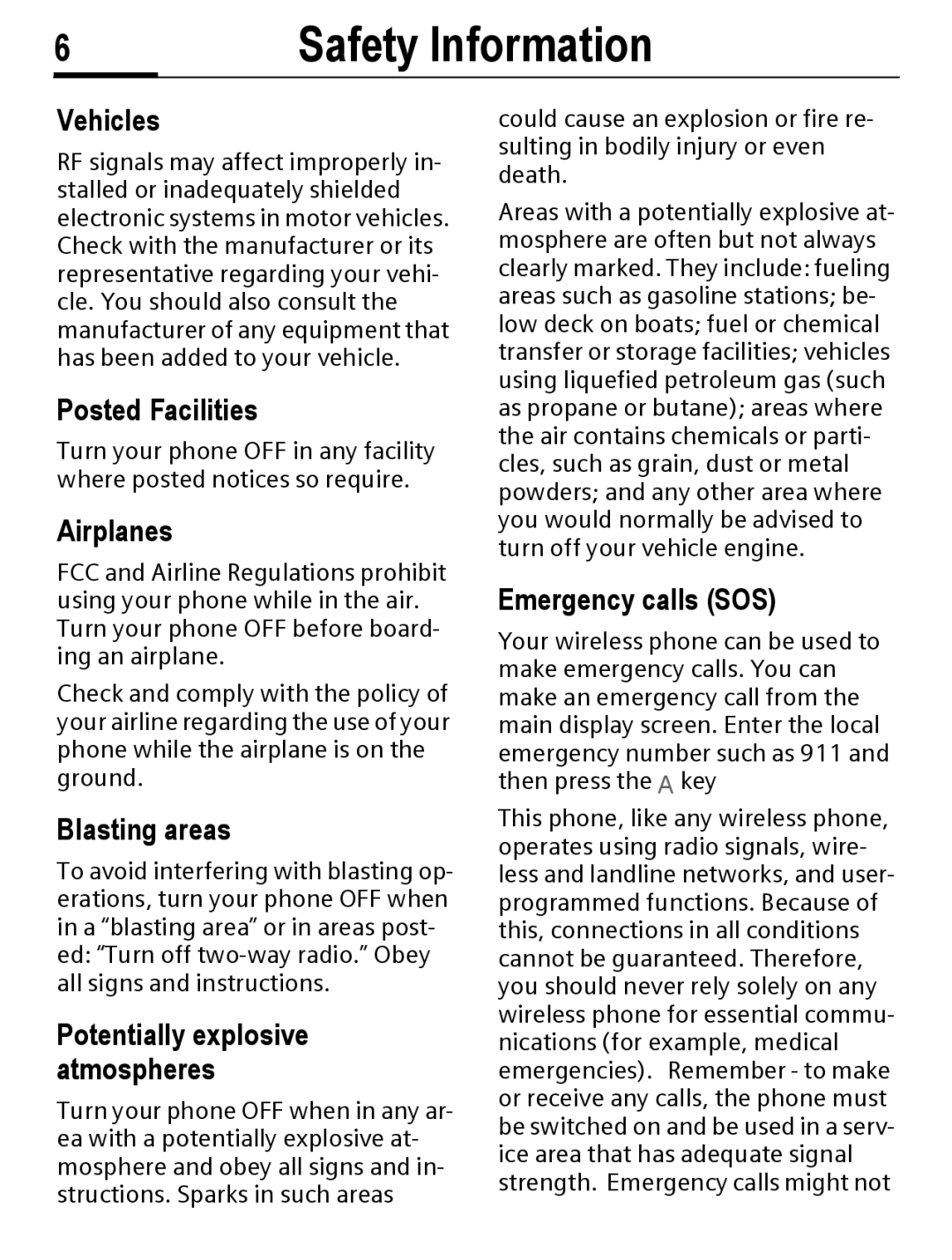6 | Safety Information |
Vehicles
RF signals may affect improperly in- stalled or inadequately shielded electronic systems in motor vehicles. Check with the manufacturer or its representative regarding your vehi- cle. You should also consult the manufacturer of any equipment that has been added to your vehicle.
Posted Facilities
Turn your phone OFF in any facility where posted notices so require.
Airplanes
FCC and Airline Regulations prohibit using your phone while in the air. Turn your phone OFF before board- ing an airplane.
Check and comply with the policy of your airline regarding the use of your phone while the airplane is on the ground.
Blasting areas
To avoid interfering with blasting op- erations, turn your phone OFF when in a “blasting area” or in areas post- ed: “Turn off
Potentially explosive atmospheres
Turn your phone OFF when in any ar- ea with a potentially explosive at- mosphere and obey all signs and in- structions. Sparks in such areas
could cause an explosion or fire re- sulting in bodily injury or even death.
Areas with a potentially explosive at- mosphere are often but not always clearly marked. They include: fueling areas such as gasoline stations; be- low deck on boats; fuel or chemical transfer or storage facilities; vehicles using liquefied petroleum gas (such as propane or butane); areas where the air contains chemicals or parti- cles, such as grain, dust or metal powders; and any other area where you would normally be advised to turn off your vehicle engine.
Emergency calls (SOS)
Your wireless phone can be used to make emergency calls. You can make an emergency call from the main display screen. Enter the local emergency number such as 911 and then press the A key
This phone, like any wireless phone, operates using radio signals, wire- less and landline networks, and user- programmed functions. Because of this, connections in all conditions cannot be guaranteed. Therefore, you should never rely solely on any wireless phone for essential commu- nications (for example, medical emergencies). Remember - to make or receive any calls, the phone must be switched on and be used in a serv- ice area that has adequate signal strength. Emergency calls might not
